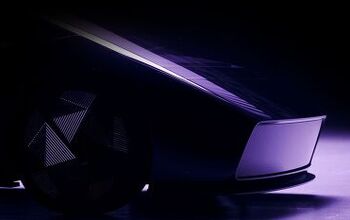2020 BMW 3 Series Vs Genesis G70

When the Genesis G70 came out last year, we were so impressed by the sport sedan that we awarded it as AutoGuide.com‘s 2019 Car of the Year.
After it won the title, we compared it to the 2019 BMW 3 Series and it won yet again. But critics (or maybe BMW loyalists) were upset, saying that it was unfair to compare the G70 to the BMW 3 Series, which was about to see a new-generation model debut. We thought it was a fair fight because even though it was older, the BMW still set the benchmark and we were impressed that Genesis, being the upstart and underdog brand it is, easily met and surpassed that benchmark. And plus, Genesis couldn’t benchmark a car that didn’t exist yet.
Now that the new seventh-generation BMW 3 Series has debuted, we have brought the two together again to see if the Genesis is still good enough to topple a newer product, one that BMW promised would be amazing. We think BMW might have over promised and under delivered…
BMW 3 Series
Maybe we’re being too harsh. The new BMW 3 Series is a fantastic sport sedan. Or is it a luxury car? Or is it a tech car? Maybe a mass market car? Either way, the 3 Series has recently struggled with its identity and this new model continues to do so — it tries to be all those things but you know what they say about being a Jack of all trades, but a master of none? This is the main issue with the 3 Series. Yes, the sedan drives well, but it’s not as engaging as a BMW really should be. Yes, it’s high tech, but a lot of it is gimmicky and not that well thought-out. And yes, it’s quite luxurious, but for some reason manages to be very uncomfortable at, and times, feel unrefined. Why are these seats so uncomfortable? Sébastien Bell, colleague and weird genius, said the seats “feel like they glued some styrofoam to a Recaro.” Neither of us could find a comfortable seating position.
ALSO SEE: 2020 BMW 3 Series Review
And the interior, while nicely appointed, makes some design missteps. There is a lack of continuity and harmony in the cabin. “The BMW throws colors and design flourishes at its interior like a first grader learning to draw between the lines,” Sébastien noted. There’s also a lot of hard black plastic and piano black that attracts dust easily, though we did like the large screen and the slick digital gauge cluster.
The infotainment system itself would benefit from being more intuitive, though the screen itself is impressive and is integrated into the dashboard beautifully. But it did weird things like continuing to play our podcasts even though we had left the car, or it would turn down the volume of our podcasts to minimum for no reason, so we’d always miss chunks of the audio.
One of the calling cards of the new 3 Series was supposed to be a new virtual assistant in the infotainment system that you should be able to speak to naturally like Siri, Google Assistant or Amazon Alexa. All you need to do is say “Hey, BMW” and then give it a task or ask it a question. You can even rename it Klaus or Günter or whatever you please. The problem is that it gets tripped up too easily even with seemingly simple commands and it doesn’t actually listen to you that well, so it ceases to be useful. It is definitely a gimmick, which is sad because it had the potential to be truly great. A similar system in new Mercedes cars called MBUX is so great that you can almost have a full on conversation with it. The system in the BMW needs work to make it more intuitive. Sébastien sums it up nicely: “It’s like having a hyper dog that looks at you when you call its name, but just keeps running away when you tell it to come. Everybody acts impressed, but they quietly pity you.”
ALSO SEE: Where is BMW Made?
One could argue that the only real thing a BMW is supposed to do is drive well, and this 3 is almost there. The chassis is typical BMW, so wickedly balanced and composed. The base 3 Series is powered by a 2.0-liter turbocharged four-cylinder sending 255 hp and 295 lb-ft of torque to the wheels via an eight-speed automatic. This is an excellent motor that feels much faster and smoother than a four-cylinder should — the power delivery is linear and not as peaky as I remember it. I often forgot there was a four-cylinder behind that kidney grille because it feels like it has two extra cylinders. I wasn’t a huge fan of the piped in fake engine noise, but that’s my only gripe about the engine.
An engine, however, is only as good as the transmission it’s hooked up to and the eight-speed unit holds it back from true greatness. The transmission often gets confused and sometimes just slams into gear harshly for no reason, even if you’re not driving aggressively and when it’s in comfort mode. The brakes would also benefit from being more communicative. I expect something more refined and graceful in a BMW. The weighty steering is a highlight but still doesn’t feel as clairvoyant as the 2 Series.
When I first drove the new 3 Series, it was very normal, commuting-to-work-type driving, and I didn’t love how it felt. It just felt like nothing special. Later when the road opened up and I was able to drive more aggressively, the BMW came into its own, feeling alive and agile. And with traction control off, the sedan was happy to let the back slide out if you were in the mood. This is what a BMW should feel like, I thought, sweeping through on ramps with a bit too much speed and the no-fear attitude that having a capable machine inspires in a driver. But then the traffic started again and I was left uninspired. Am I too greedy by wanting to be thrilled at all times while driving a sport sedan? If not being thrilled, then I want to be comfortable and not have the car get in the way. Unfortunately, the BMW wasn’t able to deliver on this consistently.
Genesis G70
“The Genesis feels right,” Sébastien noted. “I prefer the way it looks, I prefer the way it feels to be inside, I prefer the way it drives, I prefer what its badge communicates, and I prefer seeing it in my driveway.” He’s spot on.
Here’s one positive thing about having a Genesis badge on the hood of your car instead of a BMW one: People don’t automatically hate you. Design-wise, the G70 has excellent proportions and an athletic stance, but the beauty lies in the little details and trim. The unique copper detailing is gorgeous and looks high-end. If you squint, you can see shades of Alfa Romeo Giulia in the purposeful yet pretty silhouette. It turns heads and kids even yell, “Hey! Nice car!” when you drive past. I think it’s pretty safe to say that no one gets that excited about a 3 Series. There’s also a feeling of “coolness” that is impossible to engineer, and I feel so cool driving the G70, but in the BMW I felt slightly embarrassed.
In terms of driving dynamics, the G70 has a better understanding of what it wants to be. Most driving modes in cars do nothing, but in the G70, “the sport mode (as well as the comfort and the eco mode) make immediate and clear differences and are therefore more fun to use,” Sébastien says. “In sport mode, it’s taught and you get a pleasing wave of torque every time your foot goes near the throttle. In comfort, it’s quiet and comfortable.”
Pricing
Genesis G70 3.3T: The base G70 starts at $34,900, while the 3.3-liter version starts at $43,750. As tested, we estimate that the G70 you see above costs $50,995.
BMW 330i xDrive: The base BMW 330i starts at $40,250 and the xDrive version starts at $42,250. As tested, we estimate that the 330i xDrive with M package that you see above costs $49,700.
No matter what mode it’s in, the Genesis feels intuitive and responsive, comfortable yet sharp, and always so composed. The whole package comes together cohesively: precise steering, responsive and smooth transmission, balanced suspension, powerful 3.3L twin-turbo V6 — they’re all on the same page. Like the BMW, however, the brakes feel terribly numb. The Brembos work wonderfully, but the pedal is absolutely non-communicative. Still, the G70 manages to balance both the sport sedan and luxury sedan side of the equation much better than the 3 Series.
The interior is also a nice place to be with the comfortable quilted leather seats and fuss-free dashboard. I do wish the touchscreen was integrated more gracefully, however, and that it didn’t look like the infotainment system was taken right out of a Hyundai Elantra, but at least it’s easy to use. On the tech front, the BMW is definitely ahead with more bells and whistles, though it can be gimmicky at times. I would also lose my mind if Genesis used copper accents on the inside like they did on the exterior because it would really help elevate the cabin. The buttons, dials, and vents leave me wanting, but the interior is put together with German precision and the layout makes sense.
The Verdict: 2020 BMW 3 Series vs Genesis G70
In the end, the Genesis G70 retains its crown as AutoGuide.com‘s favorite sport sedan. Although it’s lacking in features and technology when compared to the BMW, it feels more focused on what matters in this segment: Driving dynamics and luxury. Add the fact that it’s also much more affordable, and the lack of tech doesn’t seem like such a big deal anyway. The BMW “feels like it’s trying to be a million different things — a smartphone, a sports car, a luxury car, a spa, a family car, and more — but it’s doing none of them well,” Sébastien says. The Genesis G70 makes fewer compromises and is executed with so much focus that anyone who drives both sedans back to back and can’t see how impressive the G70 is can be classified as a diehard BMW fan who’s in it for the badge. For these people, go ahead and get the BMW, you’ll be happy with it. But for everyone else, the Genesis is not only a smart choice but also the one we think will bring you more joy.
With additional reporting by Sébastien Bell

Jodi has been obsessed with cars since she was little and has been an automotive journalist for the past 12 years. She has a Bachelor of Journalism from Ryerson University in Toronto, is a member of the Automobile Journalists Association of Canada (AJAC), and a jury member for the prestigious North American Car/Truck/Utility Vehicle of the Year (NACTOY). Besides hosting videos, and writing news, reviews and features, Jodi is the Editor-in-Chief of AutoGuide.com and takes care of the site's day-to-day operations.
More by Jodi Lai









































































































Comments
Join the conversation